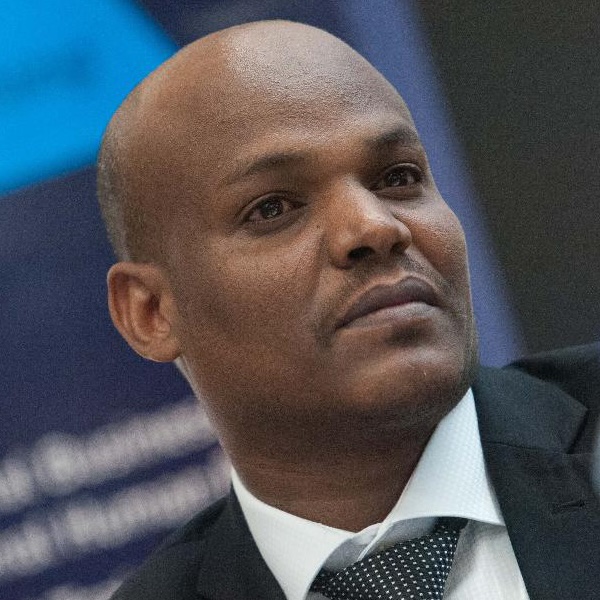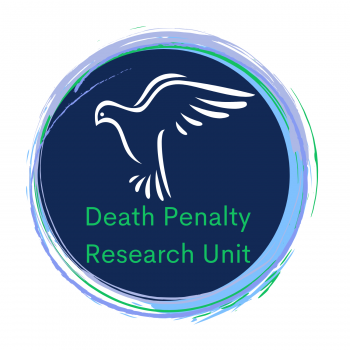DPRU Q&As: Elshareef Ali Mohammed, Sudanese Human Rights Initiative (SHRI), Sudan: Part Two
Posted
Time to read
 In the latest instalment of the DPRU's Q&A series with death penalty litigators working in the Global South, DPRU Project Manager Daniel Cullen speaks to Elshareef Ali Elshareef Mohammed, a Sudanese human rights lawyer, about the current situation relating to the death penalty in Sudan, the prospects of abolition in the country, the effects of recent legal trends and the catastrophic impacts of the ongoing war on civilians, including in the form of extrajudicial executions.
In the latest instalment of the DPRU's Q&A series with death penalty litigators working in the Global South, DPRU Project Manager Daniel Cullen speaks to Elshareef Ali Elshareef Mohammed, a Sudanese human rights lawyer, about the current situation relating to the death penalty in Sudan, the prospects of abolition in the country, the effects of recent legal trends and the catastrophic impacts of the ongoing war on civilians, including in the form of extrajudicial executions.
Are there any notable patterns among the capital cases you deal with in Sudan?
In Sudan, homicide is one of the most prevalent offences leading to capital punishment, while given the political instability, charges related to crimes against the state are also common.
In the course of our legal work at the Sudanese Human Rights Initiative (SHRI), we have observed that many cases involving the death penalty are linked to low socioeconomic status. Many defendants come from impoverished backgrounds, lacking access to quality education and employment opportunities, which often leads to involvement in criminal activities as a means of survival. Defendants also often have histories of exposure to violence, whether in domestic settings or due to local tribal conflicts. This background can contribute to their involvement in criminal activities.
Additionally, individuals from marginalized ethnic or social groups are disproportionately represented in capital cases. These communities often face systemic discrimination and lack adequate legal representation.
Defendants frequently have limited access to effective legal counsel, which affects the fairness of trials. Many rely on overburdened public defenders or lack representation altogether.
These patterns highlight the intersections of crime, poverty and systemic inequities within the justice system in Sudan. Addressing these underlying issues is crucial for promoting fairer legal processes and reducing the prevalence of capital punishment.
There were reportedly around 100 individuals on death row in Sudan as of the end of 2022. Could you describe the conditions death sentenced prisoners live under in Sudanese prisons, and to what extent these differ from those of ordinary prisoners?
The conditions for death-sentenced prisoners in Sudanese prisons are extremely harsh and differ significantly from those of ordinary prisoners. From the moment they are sentenced, death row inmates are often shackled, which amounts to torture, as they can remain in this state for years while their appeals are pending. The appeal process can take an extraordinarily long time, and since the dissolution of the Constitutional Court by the military five years ago, there has been no higher court to review their cases. As a result, inmates remain shackled and in limbo, awaiting their fate.
Although there have been no well-documented executions recently, many innocent people face prolonged waiting periods, particularly in areas controlled by the Sudanese Armed Forces (SAF) in northern and eastern Sudan. In other regions, prisons have been attacked, and prisoners released, including Kober Prison, one of the largest in Sudan, and Al-Hadi, a newly established prison housing a significant number of death row inmates.
Currently, a large number of death row inmates are held in Port Sudan, which is among the largest prisons in the country. The conditions faced by death row prisoners underscore the urgent need for prison reforms and improvements to the justice system in Sudan.
Any you aware of any political or legislative efforts towards either the abolition of the death penalty or suspension of executions in Sudan in recent years?
Yes, there have been some political and legislative efforts towards the reform of the death penalty in Sudan. In 2020, the transitional government made a significant decision to lift the death penalty and flogging as punishment for gay sex. This occurred as part of wide-ranging amendments to Sudan's criminal law, which also included the repeal of the death penalty for apostasy.
These changes were part of broader efforts by the transitional government to lead the country towards democracy after the toppling of autocrat Omar al-Bashir in 2019, who had been in power since 1989. However, these reforms have faced setbacks, particularly after the 2021 military coup, which halted further progress. While the amendments represented a step forward, including the provision that people over the age of 70 will not be executed, the journey towards complete abolition of the death penalty in Sudan remains ongoing and uncertain.
What do you think are the main barriers to the full abolition of capital punishment in Sudan?
The barriers to the full abolition of capital punishment in Sudan are multifaceted.
Firstly, there is strong resistance from conservative elements within Sudanese society who view the death penalty as a necessary deterrent for serious crimes. This cultural and societal resistance is deeply rooted and difficult to overcome.
Secondly, the political instability in Sudan poses a significant barrier. The 2021 military coup disrupted the progress made by the transitional government and stalled further legal reforms. The military regime's focus on consolidating power often sidelines human rights considerations, making it challenging to prioritize the abolition of the death penalty.
Thirdly, there is a lack of strong, sustained advocacy for the abolition of the death penalty within the country. Human rights organisations and activists face significant risks and obstacles in their work, limiting their ability to push for comprehensive legal reforms.
Lastly, the absence of a functional and independent judiciary hampers efforts to ensure fair trials and protect the rights of defendants. The dissolution of the Constitutional Court and the influence of the old regime's judiciary create an environment where legal reforms are difficult to implement and sustain.
These barriers collectively hinder progress towards the full abolition of capital punishment in Sudan, highlighting the need for concerted efforts at both the national and international levels to address these challenges.
Can you summarize recent legal trends in Sudan concerning the death penalty?
There are a few key trends. Firstly, the increased use of the death penalty is significant. It appears to be a strategic move by the government to deter further collaboration with rebel forces and set a strong precedent. Secondly, many of those sentenced are prominent figures - community leaders, politicians, professionals, individuals involved in the past Sudanese revolution and members of the resistance committees. This suggests a deliberate effort to dismantle influential networks that might oppose the government. Lastly, these severe sentences reflect the government's intention to consolidate power and maintain national security, although they raise serious concerns about the fairness of trials and potential human rights violations.
What are the broader implications of these trends?
The implications are multifaceted. Legally, the frequent use of the death penalty raises questions about the justice system's integrity and adherence to human rights standards. Politically, while these actions may strengthen the government's control, they could also escalate tensions with opposition groups and attract criticism from international human rights organisations. Socially, targeting community leaders, professionals and those involved in the past revolution and resistance committees can create a climate of fear, suppress dissent and hinder civil society's role in post-war recovery and reconciliation.
How has the recent war impacted civilians, including with respect to extrajudicial executions?
The conflict between the Sudanese Armed Forces and the Rapid Support Forces, which began on 15 April 2023, has had a catastrophic impact on Sudan. Despite their legal obligation to protect civilians, both parties have shown a blatant disregard for this duty, resulting in thousands of civilian deaths.
The conflict has led to widespread human rights violations, including killings, looting, mass displacement, rape and other forms of sexual violence. In particular, recent incidents in cities such as El Fasher, Omdurman and Wad Madani have seen a tragic number of civilian casualties. These areas have been heavily affected by the conflict, with reports of homes and public spaces being targeted.
The disregard for fundamental human rights and international humanitarian law has resulted in a grave humanitarian crisis. Almost nine million individuals have been forcibly displaced, with nearly two million refugees fleeing to neighbouring countries, seeking safety from the violence. According to the UN, there are now nearly 24 million people in need of aid and 18 million suffering from crisis levels of food insecurity.
Additionally, there have been alarming instances of extrajudicial killings and summary executions. These actions often bypass legal procedures and due process, exacerbating the already dire human rights situation. As a human rights lawyer, I have encountered numerous cases where individuals were executed without a fair trial. Highlighting these extrajudicial killings is crucial to bring international attention to these violations and advocate for accountability and justice for the victims.
The conflict has also seen attacks amounting to genocide against the Masalit tribe in West Darfur, leaving 5,000 dead and 8,000 wounded. Additionally, a recent massacre in Gezira province left 227 dead and more than 150 wounded, and there were flagrant attacks on the village of Sheikh Sammani, killing 21 people and wounding 15.
The international community must take urgent action to investigate and establish the facts, circumstances and root causes of all alleged human rights violations and abuses, as well as violations of international humanitarian law. This includes crimes committed against refugees and other vulnerable populations in the context of this ongoing armed conflict. The humanitarian crisis underscores the need for comprehensive legal and societal reforms to protect civilians and prevent such atrocities in the future.
This is the second part of a two-part interview with Elshareef. The first part is available here, covering his experience representing clients facing the death penalty, including apostasy cases, his journey to working on capital cases and the challenges faced by human rights lawyers working in Sudan.
-----------------------------
Elshareef Ali Elshareef Mohammed is a Sudan-based human rights lawyer and Founding Director of the Sudanese Human Rights Initiative (SHRI). He has extensive experience as a Human Rights Officer with the United Nations for missions across the Middle East and North Africa, including Libya, Iraq, Sudan and South Sudan, and has presented numerous cases before Sudanese courts and the African Commission on Human and Peoples’ Rights. Elshareef holds an LLM in International Human Rights Law from Birmingham City University and an LLB (Hons) degree in Law, and has been recognised by Birmingham City University for his leadership and contributions to international human rights.
Share
YOU MAY ALSO BE INTERESTED IN

